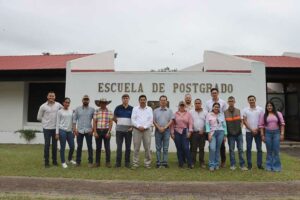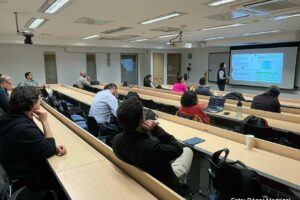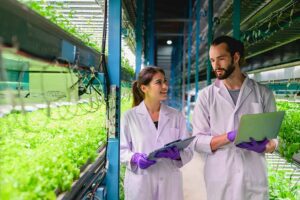Global Coordination of NIPN and CATIE Participate in the First Meeting of the Year of the Global Micronutrient Data Group
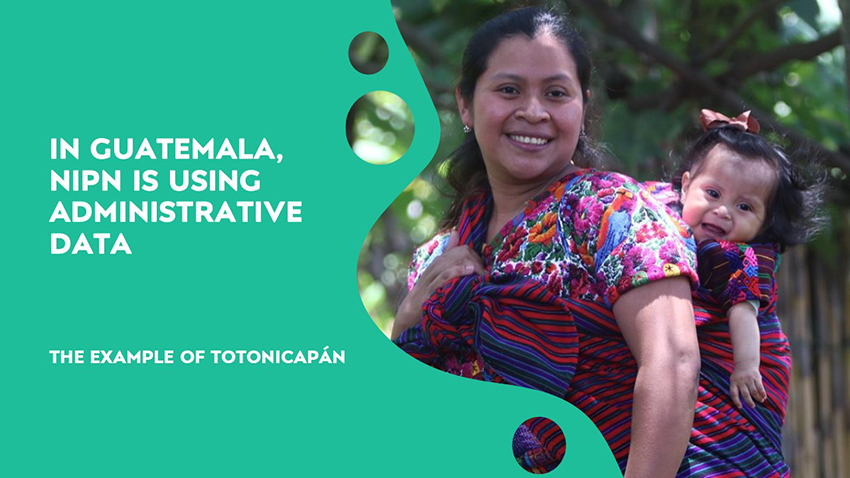
- Guatemala's efforts in nutrition were presented.
February 21, 2024. On February 14th, the National Nutrition Information Platform (PiNN) project, implemented by CATIE (Tropical Agricultural Research and Higher Education Center) and funded by the European Union in Guatemala, participated as a speaker in the first quarterly meeting of the global micronutrient data group with the presentation titled: micronutrient supplementation to combat hidden hunger, National Micronutrient Supplementation Program in Guatemala.
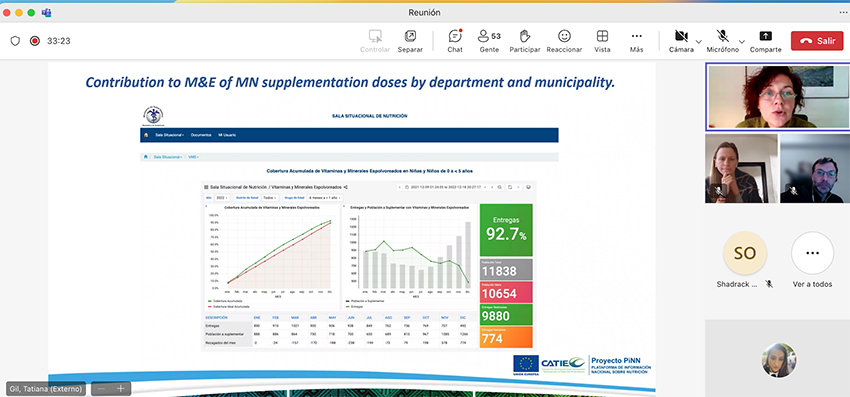
According to Tatiana Gil, consultant for Global Nutritional Information Platforms (NIPN4NIS), this is a knowledge exchange space on micronutrient data, where non-profit organizations, governments, private and academic institutions participate, with the common goal of promoting the availability and analysis of quality data on micronutrients for more effective and efficient programming based on evidence.
"From NIPN4NIS, we consider it important to socialize and exchange knowledge at a global and academic level about the nutritional situation, especially about micronutrient deficits, of children under 5 years and pregnant women and women of childbearing age, in Guatemala. It is important to highlight the work of the PiNN Guatemala project in data collection and analysis and its support to Guatemalan institutions," Gil stated.
Furthermore, Gil added that with these activities, one of the objectives of NIPN4NIS is achieved, which is to support and promote the development of local capacities to improve the quality and analysis of nutrition-related data, as well as to strengthen evidence-based nutrition policies and programs.
For her part, Gabriela Ogaldes, nutrition specialist of the PiNN project, indicated that the collaboration between CATIE and NIPN4NIS allowed highlighting the importance of national-level data on anemia in children, women of childbearing age, and pregnant women. The presented information was based on data from the last three National Surveys of Maternal and Child Health (ENSMI 2002, 2008-2009, and 2014-2015), data on the content and functionality of the National Micronutrient Supplementation Program in Guatemala, and limited data from the registration of doses delivered to children under 5 years, recorded in the National Public Health Information System of the Ministry of Public Health and Social Assistance (MSPAS).
Both agree on the importance of sharing the experience that the PiNN project has had in the department of Totonicapán, in Guatemala, on the automation of the Nutritional Situation Room tool, contributions to monthly monitoring and follow-up on micronutrient coverage, and that through the use of these automation tools, data analysis is promoted for informed decision-making and access to local data.
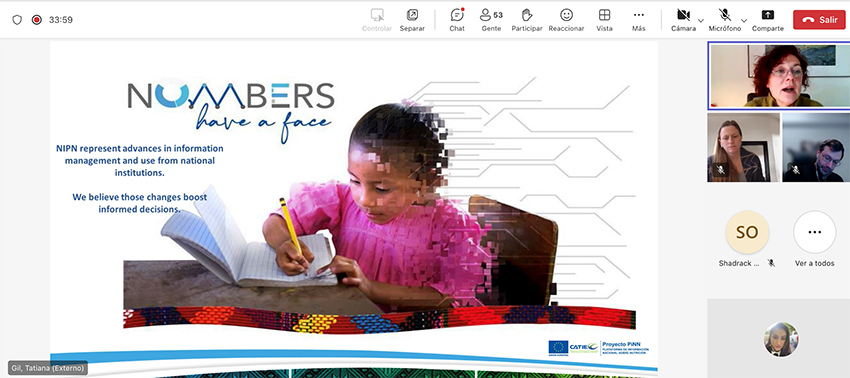
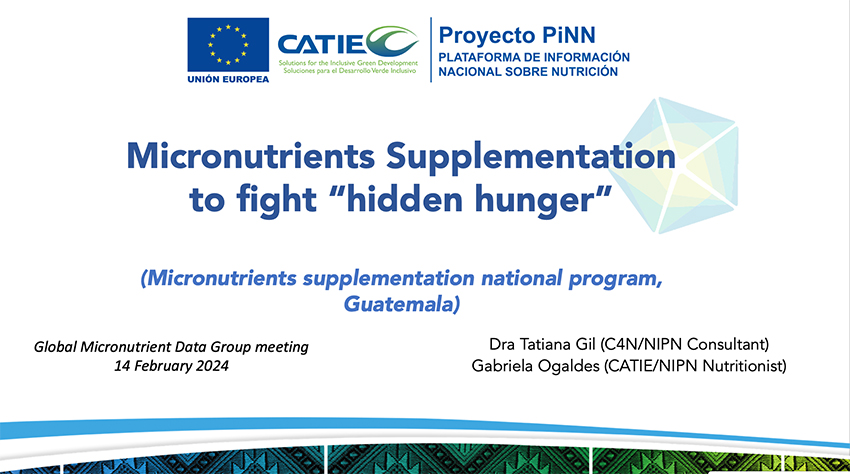
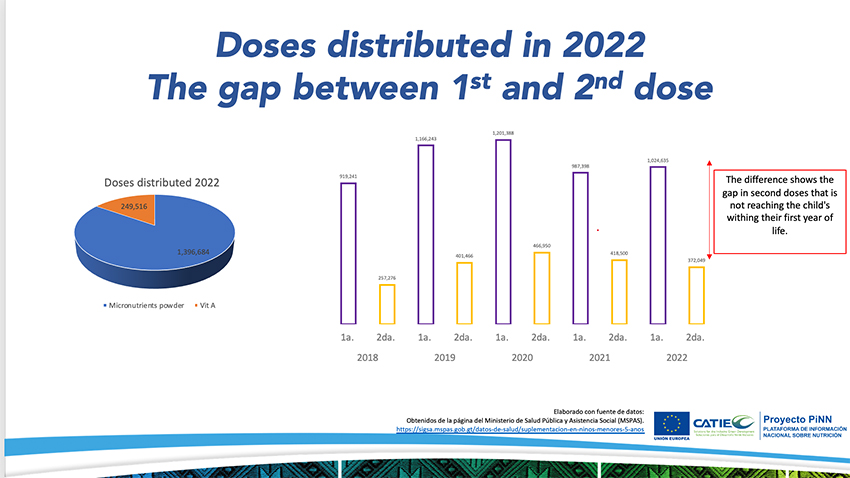
More information:
Gabriela Ogaldes
Nutrition Specialist
PiNN Project
CATIE Guatemala
Gabriela.ogaldes@catie.ac.cr
Written by:
Ninoshka Lou
Communications Officer
CATIE Guatemala
ninoshka.lou@catie.ac.cr
Tag:Guatemala, nutrición, Food security

